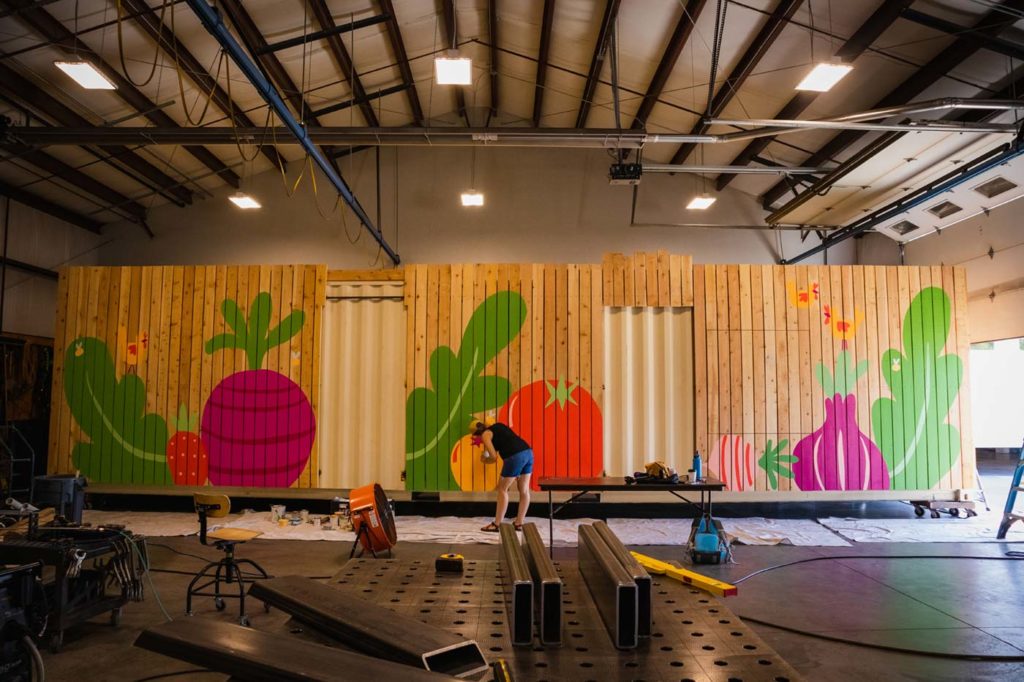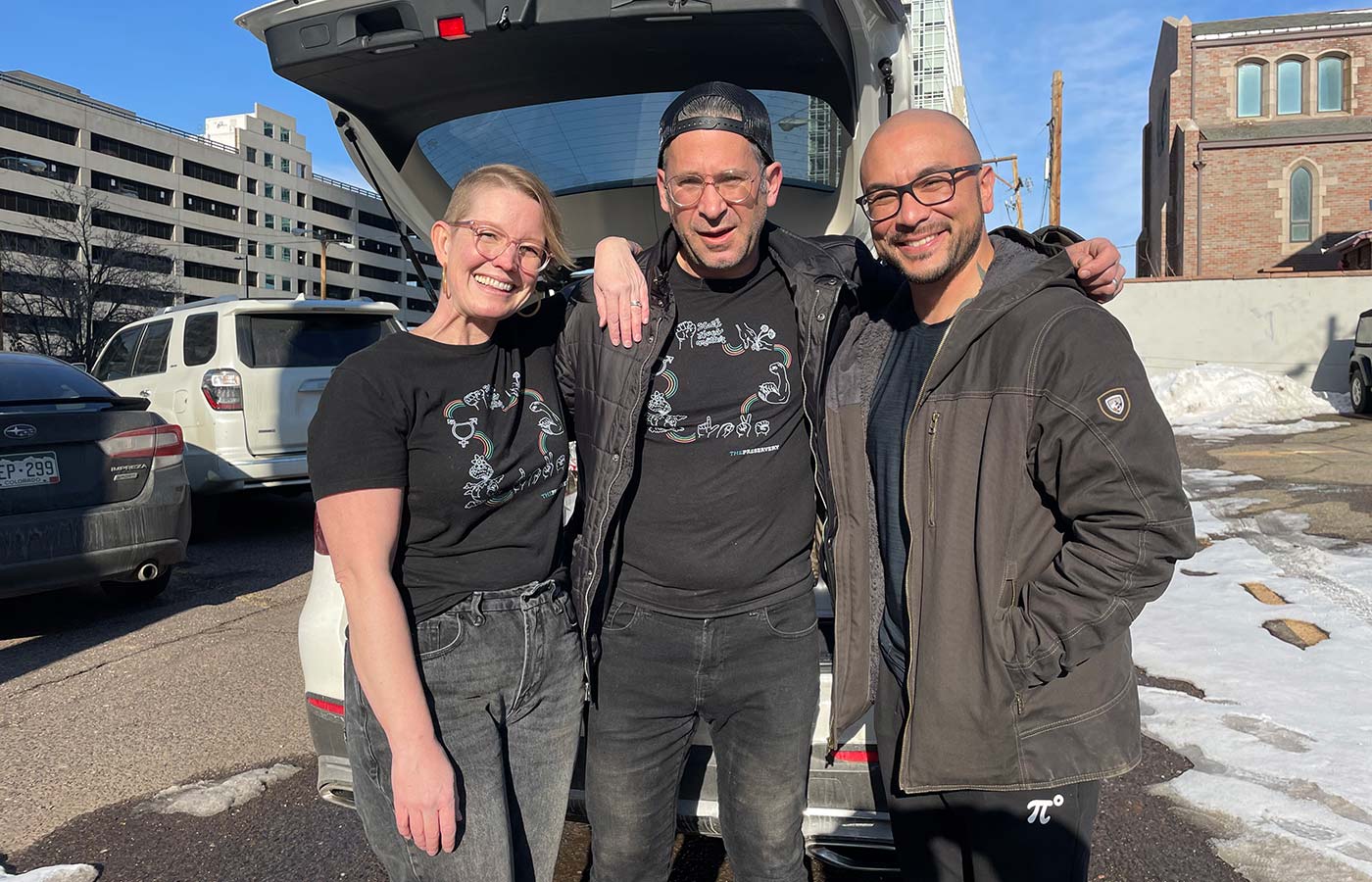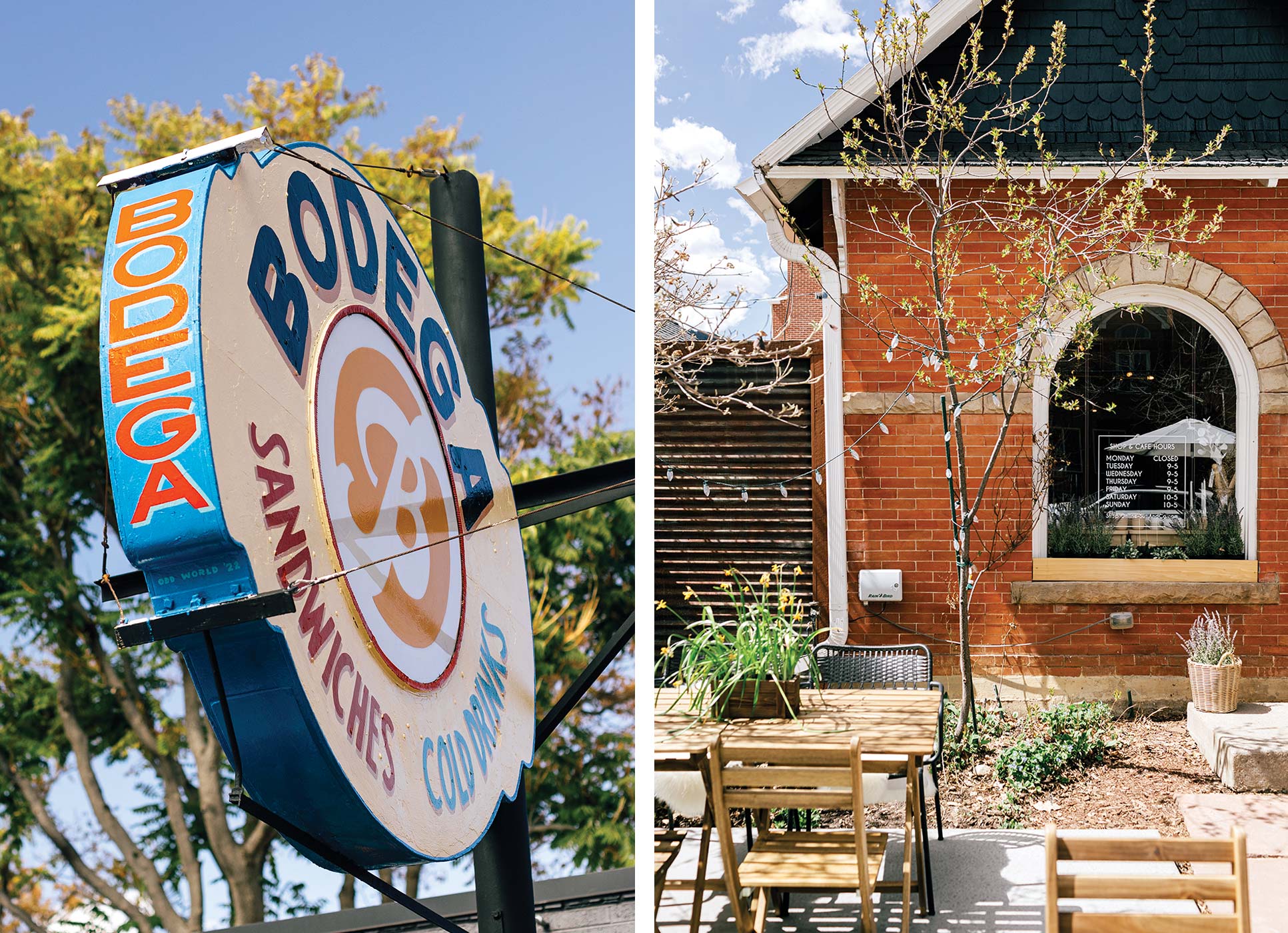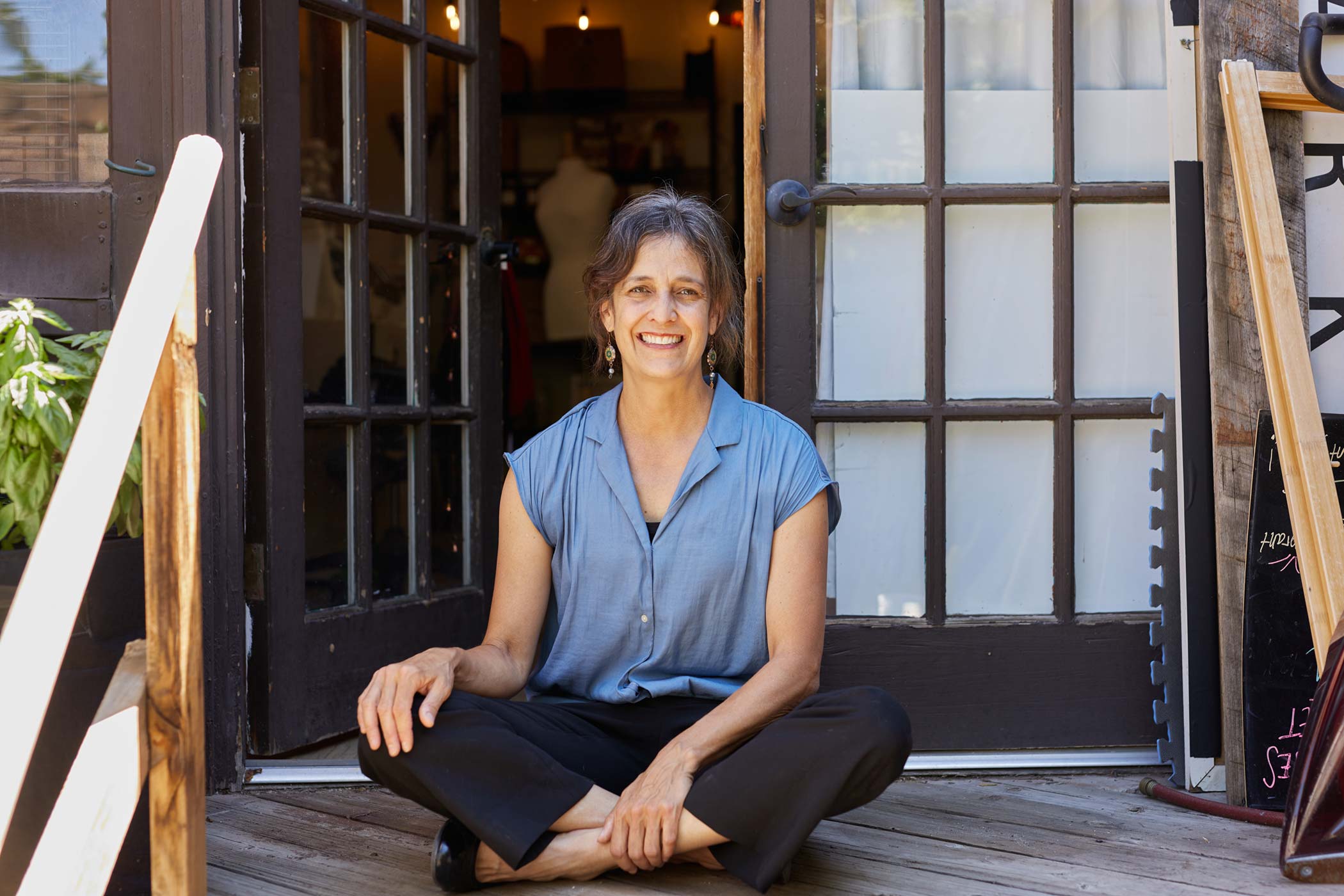A shipping container adorned with brightly colored, hand-painted fruits and vegetables has been strategically placed at the corner of Howes and Mountain in downtown Fort Collins. The playful façade houses ReKaivery, a startup grocery store concept designed to support suppliers and make local produce more accessible to the surrounding community.
A pilot project developed by two Colorado State University students—Natasha Lloyd and Audrey Welsh, as part of their master’s degree program—was envisioned to help solve the issue of food waste, a mission both were passionate about. They planned to create a network of chefs and farmers, pairing kitchens that could use an abundance of produce with farmers who’d grown more than they could sell.
Even the name ReKaivery is representative of the co-founders’ passion for ‘recovering’ food. Lloyd, who grew up in New Zealand, explains: “Māori, are the native people of New Zealand and they speak Te Reo. Kai means food in Te Reo. Because our mission was to recover food, we took the words ‘recovery’ and ‘kai’ and blended the two together.” She says, “I am honored to have a portion of my country represented in our company’s name.”
But when 2020 hit restaurants hard, Lloyd and Welsh realized recovering food by working with the culinary community would be a challenge, so they began to rethink their model. With the help of 20 local suppliers, they discussed ideas that could do more to support the rapidly changing needs of the community.
“Once-a-week farmers markets aren’t enough, so our revised model will act as an extension of farmers markets,” says Lloyd. “It aims to do two primary things: give local farmers, ranchers, growers and makers a more convenient way to sell, and provide Colorado residents better access to locally sourced foods.”
Much like a farmers market, ReKaivery will offer a range of seasonal products, including meat, eggs, dairy, etc. But their similarities don’t stop there. The ReKaivery model requires suppliers to lease shelf space the way a producer would rent booth space at a farmers market.
However, since not all suppliers have the same number of products to sell, shelf space will be rented based on the amount of space needed. If a supplier only has one or two products, they can rent a smaller space for less cost. Shelf space is rented on a month-to-month basis. Meaning a supplier who only needs a small space during the off-season could rent a larger space during their peak growing season. This gives the growers more flexibility and the opportunity to sell year-round—unlike a farmers market.
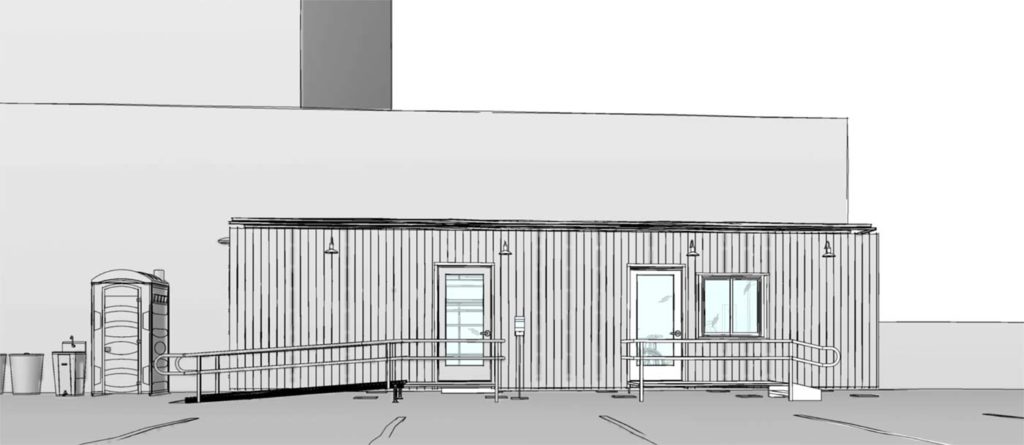
A few of the other differences between a farmers market and ReKaivery are their hours of operation and the checkout process. ReKaivery will be open from 9am–noon, and then again from 3–7pm, seven days a week (except the Saturdays when the Larimer County Farmers Market is operating). And the shopping experience at ReKaivery will include a checkout stand where, rather than paying each farmer at their individual booth, you pay for everything at once, much like in a standard grocery.
While their hours of operation and checkout process feel more like a traditional grocery store it certainly doesn’t fit the standard retail model either. Unlike a supermarket’s vast expanse, ReKaivery will operate in just 320 square feet. How the products will be arranged is also different than a traditional retailer. Instead of all the apples or lettuces being grouped together, the offerings will be arranged by the supplier who produced them. That allows shoppers to know exactly where their products come from. They’ll also include QR codes on the shelves that provide information like how far the products traveled from the farm to ReKaivery, brief biographies about the growers, or a list of other items that the grower produces.
What started as a pilot project to reduce food waste may become the perfect marriage between the locality of a farmers market and the convenience of a traditional grocery store. ReKaivery’s opening is set for April 2022, and assuming it’s successful, two more marketplaces in Colorado are planned in the next 18 months.
If you’re lucky enough, one of these whimsical shipping containers will make an appearance in your neighborhood. And two young entrepreneurs who set out on a mission to reduce food waste will be helping to redefine how we all shop for fresh, local food.

